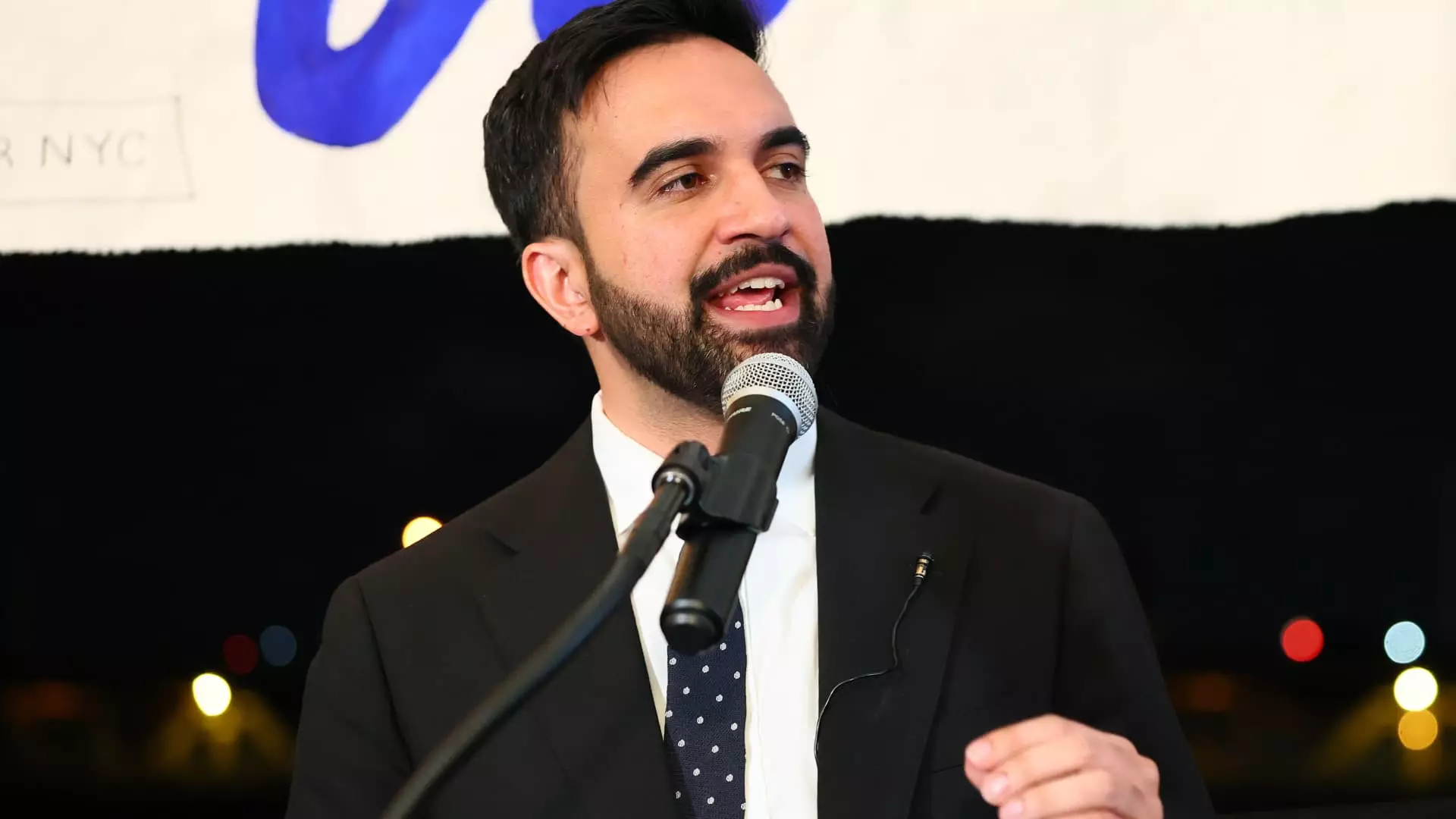Investors have reason to be anxious as shares of Flagstar Bank — the newly minted name for New York Community Bancorp — took a nosedive of 6% following Zohran Mamdani’s trajectory toward becoming the Democratic nominee in New York City’s mayoral race. This eyebrow-raising drop illuminates the precarious relationship between political climates and financial markets, particularly in a region that operates under an intricate web of regulations. Flagstar’s challenges are intertwined with Mamdani’s populist promises; namely, a freeze on rent increases for stabilized units that could deeply affect the bank’s multi-family loans, raising doubts about the company’s future earnings and stability.
The increasing intertwining of politics and finance makes it abundantly clear that economic aspirations are more vulnerable to the tides of political sentiment than many would care to acknowledge. Mamdani’s campaign resonates with a progressive base advocating affordable housing, a noble cause that unfortunately clashes with the business interests of banks like Flagstar, which have significant stake in the real estate market.
The Implications of a Rent Freeze
Mamdani’s vow to impose rent freezes is more than just rhetoric; it has tangible implications for Flagstar’s financial health. Deutsche Bank’s analysts estimate that nearly $16 to $18 billion of the bank’s multi-family loan portfolio could be at risk if such regulations are enforced, exposing about a quarter of the entire loan book to potential long-term damage. This presents a worrying scenario where the bank might find itself unable to recoup its investments in multi-family properties, especially with tighter rent regulations eroding landlords’ ability to modernize and maintain their buildings.
Morgan Stanley takes a more tempered view, projecting that the risk drops to $11 billion to $12 billion when considering properties where more than half of the tenants are rent-regulated. Despite this nuance, the precautionary measures put forth by banks, such as raising loan loss reserves, signal a potential spiral into tighter lending conditions that would only add fuel to the fire of an already volatile real estate market.
Challenges Beyond the Numbers
The challenges facing Flagstar go beyond just simple profit and loss equations. They delve into the broader realms of economic policy, societal welfare, and the future of urban living. Mamdani’s call for expanded corporate taxes complicates the landscape even further and raises questions about economic sustainability in a city grappling with a stark wealth divide. Although the power to alter tax legislation rests with the state, a shift in rhetoric can ripple through investment sentiments.
In an age where economic resilience is practically a prerequisite for urban development, the ramifications of Mamdani’s proposals could further push businesses to reconsider their engagement with the New York City market. Companies reevaluating their commercial strategies might choose to pull back investment or reconsider long-term projects given the uncertainty gnawing at every sector tied into New York City’s economy.
The Wider Market Reaction
Flagstar isn’t alone in absorbing the shockwaves of these political developments. Broader scrutiny now envelops New York City-focused real estate stocks like SL Green Realty and Vornado Realty Trust, both of which experienced declines nearing 5%. This indicates a palpable market anxiety, affecting not only banks but all entities tied to the housing economy in this bustling metropolis.
The interdependency between regulatory frameworks and real estate valuations resonates through the market, suggesting that investors need to take a multifaceted approach when considering future investments. A vigilant investor must heed the condition of the regulatory landscape, as sub-optimal changes can erode previously stable market sectors.
The Future: A High-Stakes Gamble
The interplay of political action and market reaction in relation to Flagstar’s uncertain prospects reveals a troubling portend not only for the bank itself but for the broader economic environment of New York City. The looming elections present a high-stakes gamble where new policies could throttle investment, disrupt the stability of the housing market, and, consequently, lead to a precarious financial landscape. As Mamdani continues to carve a path toward the mayoralty, the implications of his policies will echo far beyond the campaign trail, potentially molding the future trajectory of regional banking and urban economic health. The real question remains — can Flagstar navigate through these stormy political waters, or are we witnessing the unraveling of a once-stable financial institution?

